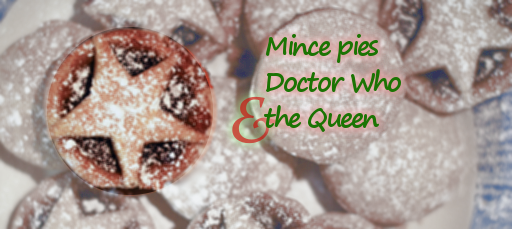What is Christmas to you? A season to be jolly, for sure. A time of rest, generally with at least a couple of days off work. To me, it’s all that; it also means the glorious taste of mince pies, the lush smell of Spice Imperial tea, a generally cheesy Doctor Who special and, obviously, the Queen‘s message. It means feeling warm and comfy, homely. And, yes, it means the birth of Christ, but if I’m honest that’s not the first thing I associate with Christmas.

Photo: Flickr user quattrostagioni, reused under CC License
In Christian circles, around Christmas time, there’s often talk of “bringing Christ back into Christmas“. Of course, the flip side of this religious frenzy is that officials shirk from calling the mid-winter festivities Christmas, opting rather for Winterval or some such nonsense.
The truth is, Christmas, as a feast, is no Christian holiday. Historically, it coincides with the pagan rite of marking the winter solstice. There’s no credit whatsoever to the notion that Jesus was born in December. Picking the 25th December is as valid as picking the 23rd November.
What then – has Christmas no place in the Christian calendar? Of course it does ! It is part of the rich tradition of the Christian church through the ages. It was celebrated in ages where being Christian was the standard. And so Christmas is not about celebrating Christianity in general, nor is it about celebrating Christ. Rather, Christmas is the celebration of the Incarnation. It is the celebration of Immanuel, God with us. It is the celebration of a God who made himself human for our sake; it is the celebration of a God who is still human when he intercedes for us.
Of course, the Incarnation would eventually lead to the Cross. It would ultimately lead to the redemption of our sins; and it would be a mistake to consider the Incarnation without taking in what it would lead to. But it is just as grave a mistake to make everything about Easter. Doing that would be tantamount to dismissing all of Christ’s ministry up until the Cross. And so, whilst the death and resurrection of Christ is central to Christianity – it is not central to Christmas itself.
That’s why standard evangelistic talks of redemption are not fitting for Christmas. Standard re-hashings of the basic Christian message are not what Christmas is about. Because, let’s face it, if we are to “bring Christ back into Christmas”, it suggests that one needs a special occasion (such as Christmas or Easter, maybe) to remind ourselves of what Christianity is about.
Quite the opposite, actually. Festivals play a part that is akin to the lectionary’s: they take us through the whole wealth of themes and lessons, rather than keeping us stuck on the same old song. Advent is a double-bill of looking at how Christ’s coming was foretold and prepared, whilst simultaneously looking to his second coming. Christmas is rejoicing over an Incarnate, relational God. Lent. Easter. Pentecost. All these have their own focus, and rightly so. Because a Christianity that is solely about the Cross is as stale and dead as a Christianity that does not look at the Cross.
So let’s stop trying to bring Christ back into Christmas. Rather, let’s recognise that the secular aspects of Christmas – mince pies, Doctor Who, the Queen’s message, etc. – are also what makes Christmas what it is. Let’s enjoy these aspects, rather than shunning them as purely secular. And, yes, let’s also remember Christ, but that should happen everyday. No shoehorning is fitting at Christmas, for it alienates more than it welcomes. What’s special about Christmas is the focus on Immanuel. The Incarnation. The human nature of God; rather than what he did or how he preached. And that’s what we should mirror: love, and kindness – in all seasons, but all the more so at Christmas/
